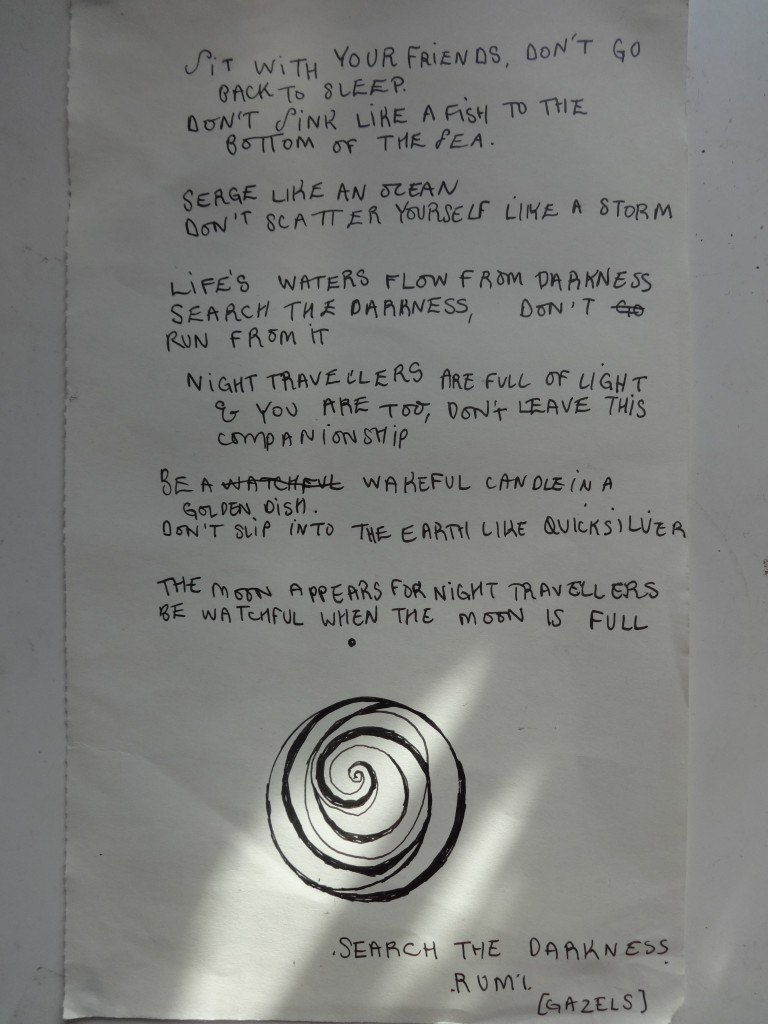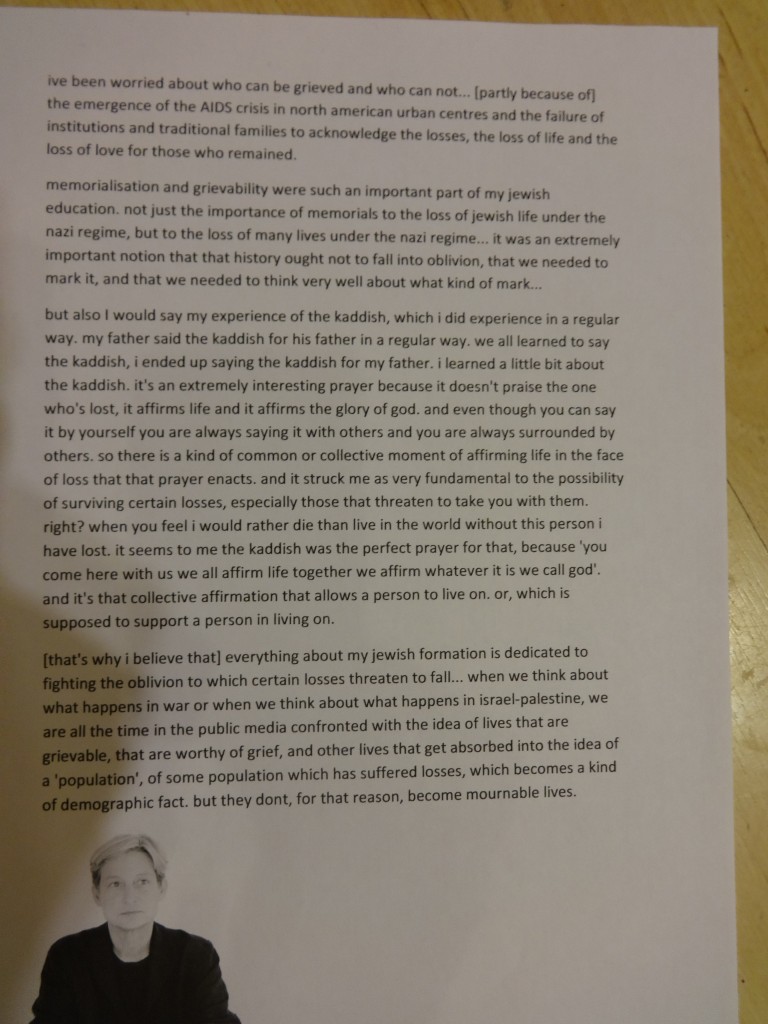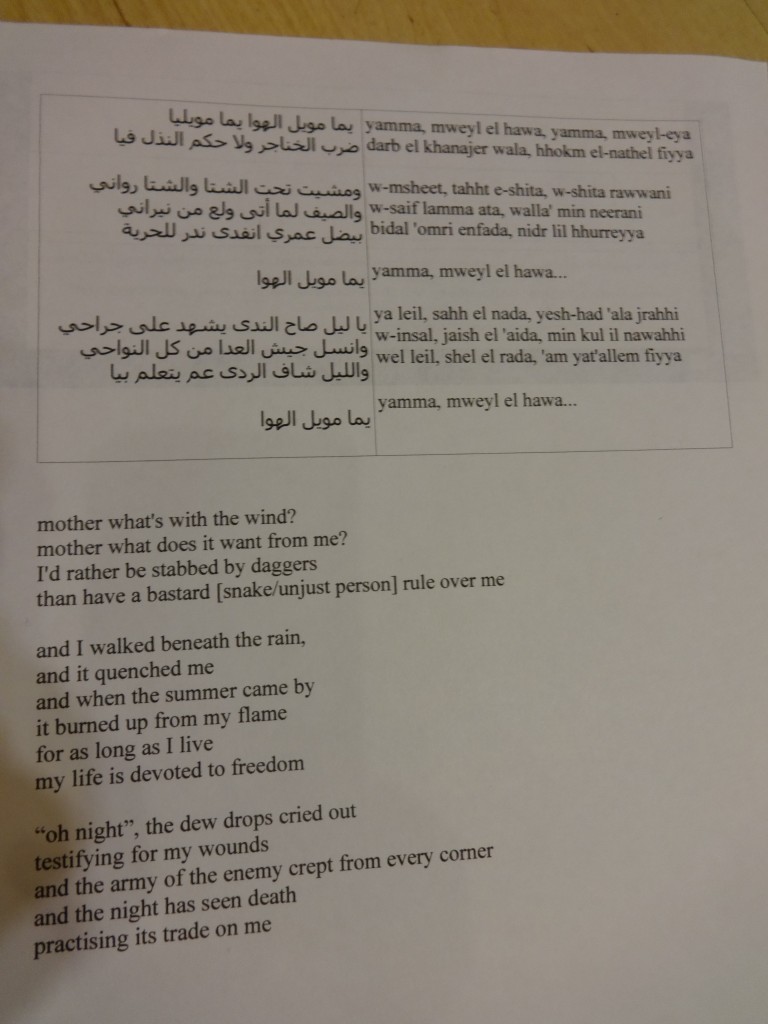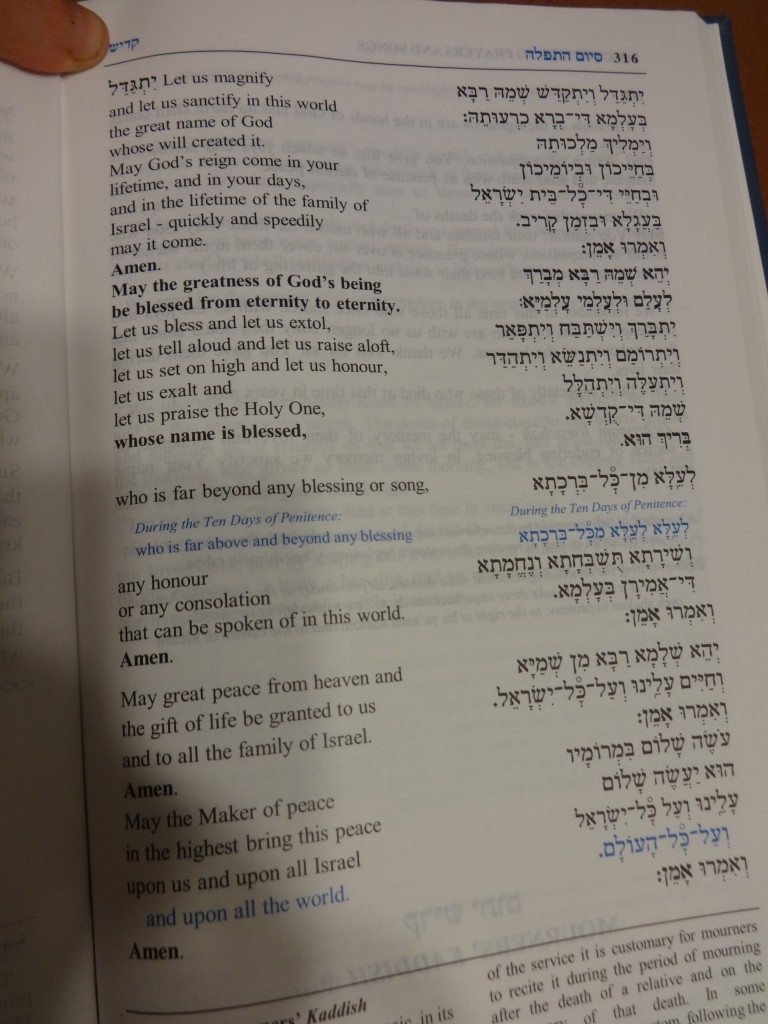Mourning service from September 2014
We have so few spaces in which to mourn, and the ones that are there can seem too scripted, too rigid sometimes. During last summer and autumn, I found myself seeking out and connecting to memorial services in shul and elsewhere, but I didn’t feel I able to talk to those around me about who and what and why I was mourning. So a few Jewdasers made our own space for that, and this is how we did it.
In a friend’s living room just after Yom Kippur, we closed the door and lit some candles. We sang a nigun to get us in the mood – עזי וזימרת יה (ozi ve zimrat yah) from שירת הים (shirat hayam – Song of the Sea)
We had four circles of reflection – going around the room taking turns to share personal stories and memories, together with poetry and song.
א Mourning for people close to us, for people we loved or who touched our lives in some way. From the past year or from any other time
ב Mourning for people we are somehow connected to but may not have met, and now never will. In Palestine, Kobane, and many other places
Judith Butler, from Jewish Book Week 2013
זאָג ניט קיין מאָל (zog nit keynmol) – the song of the partisans of the Vilnus ghetto
|
Never say this is the final road for you, |
zog nit keyn mol, az du geyst dem letstn veg, khotsh himlen blayene farshteln bloye teg. |
זאָג ניט קיין מאָל, אַז דו גייסט דעם לעצטן וועג, |
http://h2g2.com/edited_entry/A87735748
يما مويل (yamma mwel) – A Palestinian resistance song
ג For sickness and hardship – our own and of those we love and try to support. Hardships of body, mind and spirit
ד For healing. For finding meaning. For love, for community. For holding on, getting through. What has kept us going and brought us joy in the last year? What do we hope to enjoy, heal with and be strengthened by in the coming year?
Then our trainee-rabbi-in-residence said a few words to bring us back to Sukkot – the ימים נוראים (yamim nora’im), this period of the “high holy days”, of the new year and Yom Kippur and all the rest, can put a lot of pressure on ourselves to be perfect, and Sukkot shows us how we can’t be – the sukkah has holes and it’s cold and wet.
So we went outside and recited the Kaddish, the mourner’s prayer, together in the rain,
and finished with
עושה שלום במרומיו (oseh shalom bimromaiv)
(…we sang “שלום אלינו ואל כל בני אדם” – peace upon us and all humanity)
and,
ופרוש עלינו סוכת שלומך (ufros aleinu sukkat shlomeichah) – spread over us a sukkah, a shelter, of peace.
Posting this up here so that others can use this as a template or inspiration. For a similar vibe, Geoffrey recommends:
Grassroots Jews during the High Holy Days
LEAPP – Learning, Eating and Progressive Prayer , monthly shabbes dinner
and our very own New Diaspora Project, coming soon(ish) to a shtiebl near you… and having irregular knees up and DIY festival celebrations in the meantime – speak to Geoffrey if you wanna pile in







